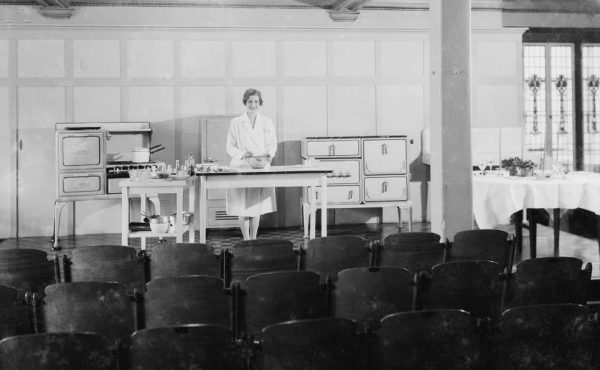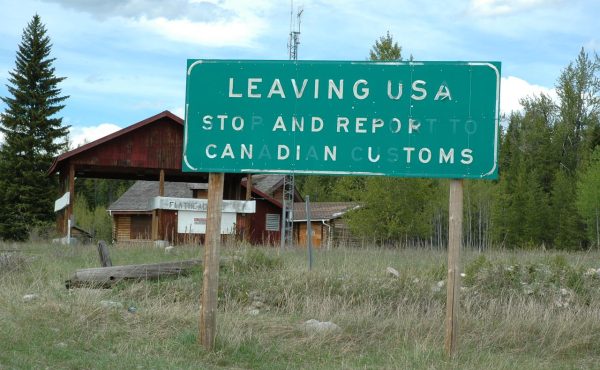

As we head into this week’s provincial vote, has anyone noticed a ballot question floating around Ontario’s body politic? Oh, I pretty much know what the parties vying for Dalton McGuinty’s head want the ballot question to be. But whether there’s a real one out there is hardly clear. Certainly, the live wire of political anger that accompanied David Miller’s departure from the mayor’s office is conspicuously absent from this race.
The only compelling narrative, at this point, is whether Andrea Horwath, the NDP leader, gets to be a kingmaker after Thursday. Will she make populist common cause with Hudak and negotiate the end of the HST on hydro bills? Or would she unearth the few progressive tidbits in the NDP platform and cut a deal with Dalton?
I can barely contain my excitement.
Lost amidst the desultory speculation about the shape and trajectory of a coalition is any consideration of how said minority government would deal with the occupants of that Death Star up in Ottawa.
As a general rule, federal-provincial relations work best when there’s a bit of creative — which is to say partisan — tension built into the partnership. Yes, there were Liberals on either end of the equation between October, 2003, and January, 2006, with David Miller rounding out a progressive trifecta that delivered the gas tax, housing money, and other city-friendly policies.
But the McGuinty government has also maintained a solid working relationship with Stephen Harper’s Tories over the past five years, at least in part because the Liberals showed they had the guts to back the HST.
Yet I’d argue that Toronto and the GTA benefited because the provincial Liberals could operate from a position of strength; after all, they found themselves dancing with successive minority governments – first Paul Martin’s (2004-2006) and then Harper’s two terms presiding over a split Parliament.
Harper, ever eager to hold onto power, had an incentive to play nice.
The reverse certainly won’t be the case. I am not eager to have a minority government at Queen’s Park try to negotiate with a Harper majority. He’s got zero incentive to yield on contentious matters, especially if he sees that the gang running Queen’s Park seems a bit unsteady on their feet.
Do federal-provincial relations bear on city issues in the foreseeable future?
Absolutely. Ottawa maintains a large infrastructure pot, but spending plans must be negotiated with provincial counterparts. A Tory-on-Tory negotiation, if you will, can only mean that such funds are unlikely to trickle into this decidedly non-Tory city.
As for a Liberal-NDP coalition, Horwath’s priorities, both electorally and from a policy perspective, have little to do with urban issues. If the NDP are propping up a hobbled McGuinty regime, there will be that much more pressure to direct funds to the hinterland.
As is probably obvious by this point, I am not a fan of Horwath’s NDP. The party’s transit platform is a joke (how do they propose to force municipalities to freeze transit fares, and is that even a good idea?), their positions on the HST and gas taxes are intellectually dishonest, and their green energy policies make no sense.
Between 2004 and 2006, Paul Martin and Jack Layton made common cause on a constructive, albeit short-lived, urban agenda, largely because they were both interested in city issues. The McGuinty Liberals, for the most part, have also done right by the GTA. But Horwath’s head is elsewhere, and I’m guessing that Harper’s tacticians will easily figure out how to exploit the constituency gap between the two parties, possibly with an eye to making even more gains in the vote-rich GTA.
From where I sit, the best way to keep a federal Conservative majority in check is with an Ontario Liberal majority, especially given the leadership vacuum on the opposition benches.
Just remember Mike Harris and Jean Chretien, and then flip it around.




8 comments
You would endorse a party that supports unconstitutional mass arrests by police?
Darwin: McGuinty has a terrible record on human rights (at least by this country’s standards), and I was all about voting him out on that point alone. But have you looked at Hudak’s law-and-order platform? If we’ve learned one thing from recent elections, it’s that you don’t punish a party at the polls if the alternative is even worse.
There is the option of voting NDP, especially in the areas where the readers of this blog are likely to live.
The writer the article specifically endorsed a Liberal majority when there where many other options available, such as a Liberal minority, or voting NDP or Liberal where strategic.
I have to disagree on the point that the McGuinty Liberals are the most urban friendly of the major parties. There are major gaps in the Liberal Platform on some major urban issues such as transit funding, affordable housing and reforming the OMB.
As it regards transit funding, most Torontonians would agree that provincial funding for the TTC is an important issue. It’s shameful that TTC relies on the fare-box to provide nearly 70% of its revenue (the other 30% comes directly from municipal taxes). Similar-sized cities to Toronto in North America receive substantial subsidies which keep their ratio closer to the 50/50 solution proposed by the NDP. On the matter of freezing transit fares, I’m confused as to why we shouldn’t strive for an affordable system?? In my experience of riding different public transit systems around the world, the feature I appreciated most was affordability. Why else have a subsidy except to take the burden off riders? We already know many low-income individuals are transit dependant. Keeping fares affordable is therefore a part of ensuring equal access.
I would also like to mention that the McGuinty gov’t is vulnerable to criticism that its urban agenda is sometimes half-hearted. The cancellation of Don Mills, Jane and Malvern LRTs are a good example. We’re all aware that McGuinty later deferred to Rob Ford and cancelled the Sheppard and Finch LRT lines as well. There is also the matter the Airport-Rail link, another Liberal project. The link, as presently planned, is an extraordinary example of bad city-building. As the Clean Train Coalition and the Toronto Officer of Public Health have pointed out, the line requires electrification in order to meet even basic global standards for such a project. Regardless, the McGuinty government is proceeding with diesel technology simply as a cost-cutting measure.
I have enjoyed talking with the NDP telephone callers in this election who have me on their list of “friendlies”. I had politely, but firmly told them that I would love to have the opportunity to vote for a Social Democratic party – but will not support populist nonsense.
Energy is a scarce resource and we need to learn how to use it sensibly. Providing tax incentives for energy waste is a serious non-starter for me. Similarly, freezing transit fares for four years is a recipe for decay. Inflation is inexorable and freezing fares means cutting money needed for service by 3% or so each year. That means 12% (plus compounding) over 4 years.
I have already – at the advance poll – engaged in a longstanding Canadian tradition – Hold Your Nose and Vote Liberal. Liberals, for a progressive, have serious flaws – but at least they will not do any major damage.
Ok. Ontarioans were desperate to dump Rae. We got Harris. We are just starting to recover from that one. Then, Miller was somehow viewed as being horrible and we got Fords. 8 months later everyone realizes they made a terrible mistake. Do we see a pattern here? Destructive non leaders never work out. Dalton isn’t perfect. But he is better than the alternative.
The NDP’s platform is pure pandering and flies in the face of their past dedication to conservation. The PC’s and the NDP are presenting a false view of energy prices and stranded debt. Even today we are not fully paying the cost of electricity generation.
I would love to see province wide standards for stand-by and off power consumption on electronic devices. This would conserve/create more power than any plan that any of the 3 parties has come up with. It is estimated that 15 % of electricity consumption is used by voodoo power.
I am voting NDP because of the local candidate but none of the 3 parties wants to take bold action or fess up about Hydro costs.
Agreed, though ‘for the most part’ kinda glosses over a certain transit initiative which was mortally wounded by the Premier, then killed off by our present mayor.